Introducing New Passover Wines approved for 2024: Lovatelli, Cantina Giulian
The Festival of Passover starts April 22 – 30, an eight day holiday celebrating the Israelites’ Exodus from Egyptian slavery.
The most important event in Jewish history is marked by eating a festive meal with matzah, telling the Passover story (Seder) and drinking four cups of wine. And, when you have four cups to get through in one Seder dinner, wine quality is paramount.
Passover wines perfect for 2024
Royal Wine Corp. is the largest manufacturer, importer and exporter of Kosher wines and spirits, with a portfolio that spans hundreds of brands and thousands of bottles of world-class wines.
For Passover 2024, they are introducing top quality wines from some of the finest wine producing regions including California, France, Italy, Spain and Israel, among others.

Lovatelli
While forty percent of annual kosher wine sales occur for the Passover holiday, sales of kosher wine and spirits have been growing significantly throughout the rest of the year.
The not-so-secret to perfect passover wines
According to Jay Buchsbaum, VP of Wine Education at Royal Wine Corp.,
“There’s nothing cookie-cutter about these Passover wines – they are top notch, award winning and distinctive.”
Jay Buchsbaum
VP of Wine Education at Royal Wine Corp
“And, while red wine is traditional for the Passover Seder, it can be a nice Burgundy or a Pinot Noir, or a Cabernet – just as long as it is kosher for Passover. There are dozens to choose from. And, just to be clear, our portfolio consists of acclaimed wines that just happen to be kosher, recognized for our quality and value.”
These Passover-approved bottles will complement any Seder fare. “L’Chaim”
- Rocca delle Macie Chianti Classico, world famous winery producing kosher wine for the first time. This renowned and well regarded brand is producing kosher wine for the first time exclusively for Royal Wine Corp. (with more to come); SRP $25
- Lovatelli, a new line of fine and affordable Italian wines, including a Salento Primitivo, SRP $17 and a Barbera d’Asti, SRP $25; Coming soon: Nebbiolo, a Super Tuscan, as well as two new vermouths.
- Cantina Giuliano, fully kosher boutique winery started in 2014 in Tuscany, Italy. The winery was started by a young couple, who inherited wineries from their grandparents. It’s now fully kosher with new bottles and labeling.
- Many new kosher wines are being imported from South Africa by ESSA and J Folk wineries (among them are : Chenin Blanc, Pinotage, Cabernet Sauvignon and more).

- Bartenura – Flavored Moscatos in cans such as Peach, Lychee, and new Blueberry.
- Château Dauzac Grand Cru Classé and Aurore de Dauzac Margaux ’21
- Chateau Roubine Cru Classé Lion & Dragon Red
- Des Moisans Deau Cognac Privilege
- Herzog Lineage Momentus Rose
- J de Villebois Sancerre Pinot Noir
- Kamisa Winery – Galilee, Israel
- Malbec du Clos Triguedina – Cahors
- Shamay Winery Upper Galilee, Israel
- New Carmel Black Cabernet Sauvignon, Galilée, Israel (SRP $30)
- Brio de Château Cantenac Brown, Margaux
Is Kosher for Passover Wine Hard to Find?
Actually, it’s rather easy! Most kosher wine is also kosher for Passover, making it easier to sell this wine (and for consumers to stock up on bottles) year-round. Any kosher-for-Passover wine will have a “P” symbol or “Kosher for Passover” next to the kosher certification on the label.
But that’s not the case with some spirits. For example, you’ll be unlikely to find kosher-for-Passover whiskey, as whiskey is made with grain.
Fine kosher wines are made the same way that fine non-kosher wines are made,” adds Buchsbaum. “There is no kosher winemaking ‘technique.’ What’s required for the wine to be considered kosher, is that the wine be handled only by Sabbath-observant Jews. And there are plenty of fine winemakers and cellar workers who are Sabbath observant. Great grapes and skilled winemakers yield great wines—kosher or not.
Consumers looking for wines from renowned regions throughout the world can satisfy their thirst with more options than ever before. It seems the problem is not the availability of great wine but the overwhelming number of great wines to choose from. Royal Wine offers a delicious selection of kosher for Passover wines from around the world,” says Buchsbaum. “Some of the top producers are creating award-winning varietals at every price point, and with Passover just around the corner, we want to take the guesswork out of buying wine.”
Why Four Cups of Wine
One of the rituals served at Passover is the custom of drinking four cups of wine. The four cups of wine are consumed in a specific order as the story of Exodus is told. Served to the adults throughout the dinner, these four wines represent points from the exodus story. While there are several explanations for the significance of the number four, the connection to “freedom from exile” is often referenced. For observant Jews, the wine served should be kosher. Although a kosher wine uses the same grapes as other wines, the wine making is handled by “sabbath-observant Jews”.
YOU MIGHT ALSO LIKE
Nén Danang Awarded 2024 MICHELIN Green Star for Sustainability
Nén Danang Awarded 2024 MICHELIN Green Star for Sustainability
At the prestigious MICHELIN Awards Ceremony held at the InterContinental Hotel Saigon, a notable achievement was celebrated within the realm of sustainable gastronomy: Nén Danang, a pioneer in Vietnam’s fine dining scene, was honored with the 2024 MICHELIN Green Star for Excellence in Sustainability. As the first Vietnamese restaurant in the world to be recognized, as well as the first in Vietnam, this accolade underscores Nén’s commitment to innovative and environmentally conscious practices that set a benchmark for the industry.
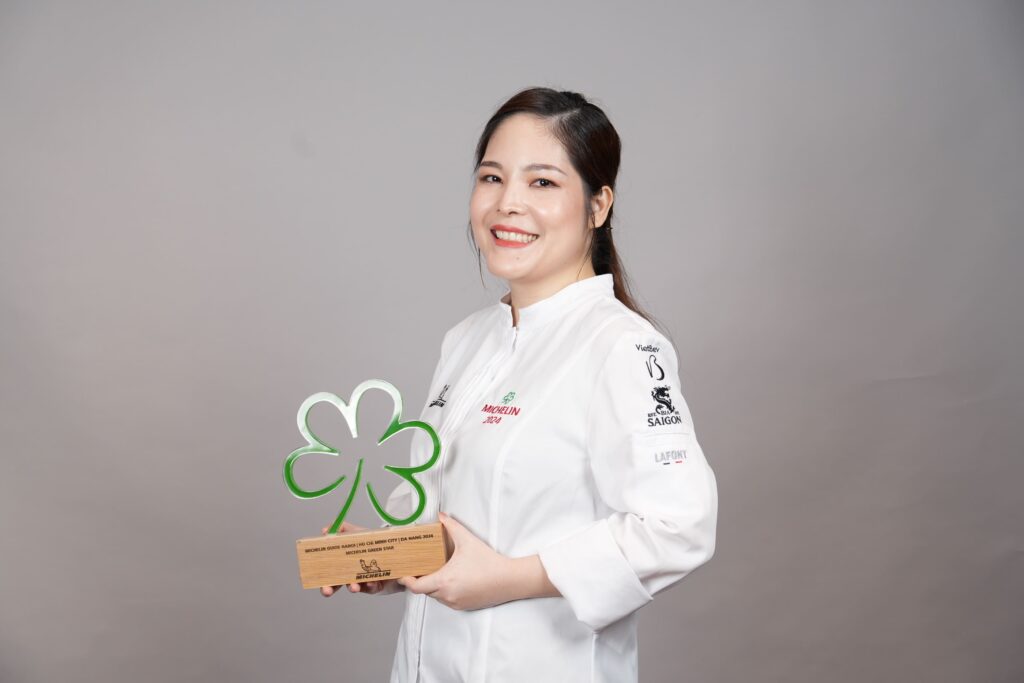
The Michelin Green Star, a prestigious annual award, celebrates restaurants leading the industry in sustainability. Highlighting establishments that uphold rigorous ethical and environmental standards, this accolade recognizes those who collaborate with sustainable producers and suppliers to minimize waste and reduce or eliminate plastics and other non-recyclable materials. To date, only 540 restaurants worldwide have earned this honor, offering dining experiences that not only exemplify culinary excellence but also demonstrate exceptional eco-friendly practices. These restaurants serve as beacons of inspiration for both enthusiastic foodies and the broader hospitality industry.
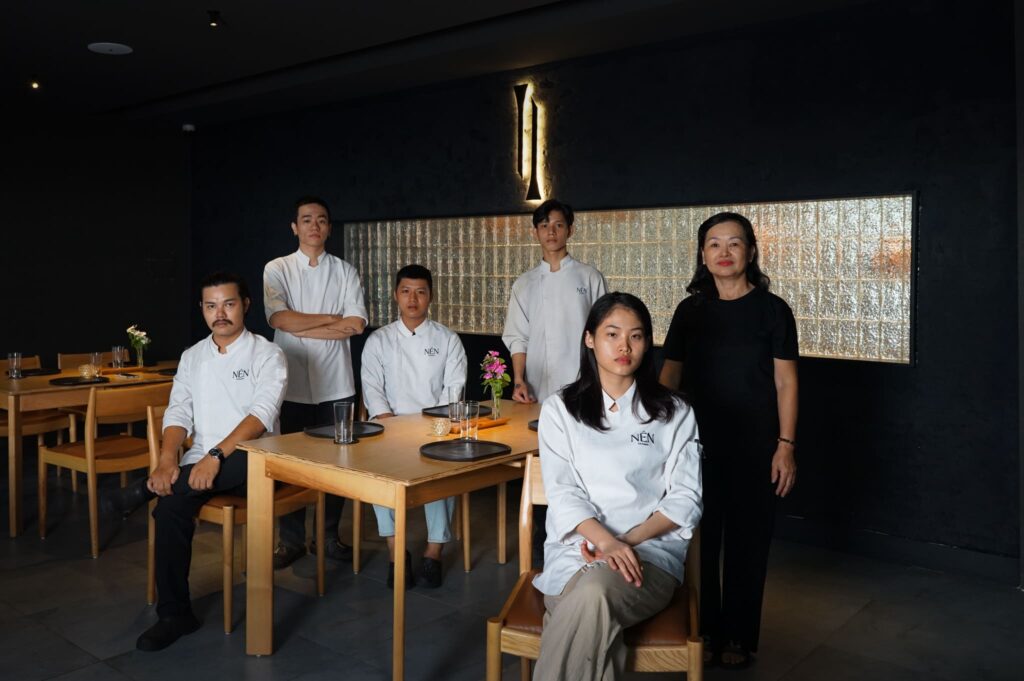
Nén Danang, under the visionary leadership of Chef Summer Le and her partner Leon Le, has been instrumental in redefining what it means to dine sustainably. With a culinary philosophy deeply rooted in the principles of ethical and environmental stewardship, Nén sources 99% of its ingredients locally, including from its own farms, thereby supporting Vietnam’s local economies and artisans while minimizing environmental impact. This approach not only ensures the freshest ingredients but also fosters a strong connection with the community and the natural world.
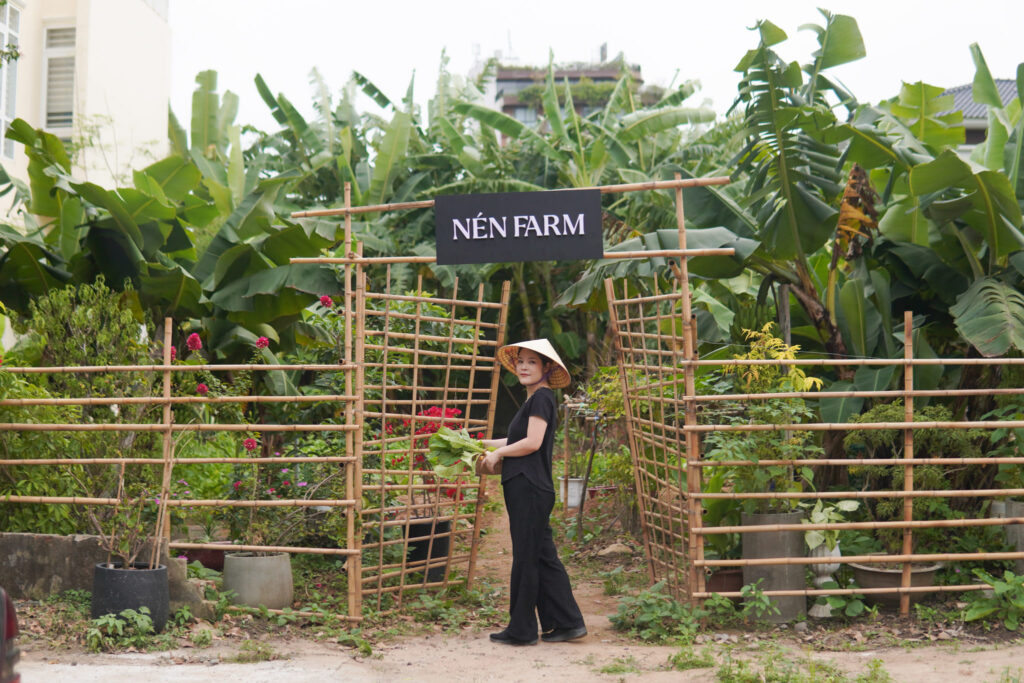
The restaurant’s Sto:ry Menus exemplify this ethos, merging rich Vietnamese traditions with inventive dining experiences. Each dish is a celebration of nature and a narrative of culture, crafted to offer a multi-sensory delight that evokes emotions ranging from joy to nostalgia. Notably, their Sto:ry Menu #5 is a zero-waste venture that transforms everyday ingredients, such as eggshells into noodles, showcasing an innovative approach to sustainability.
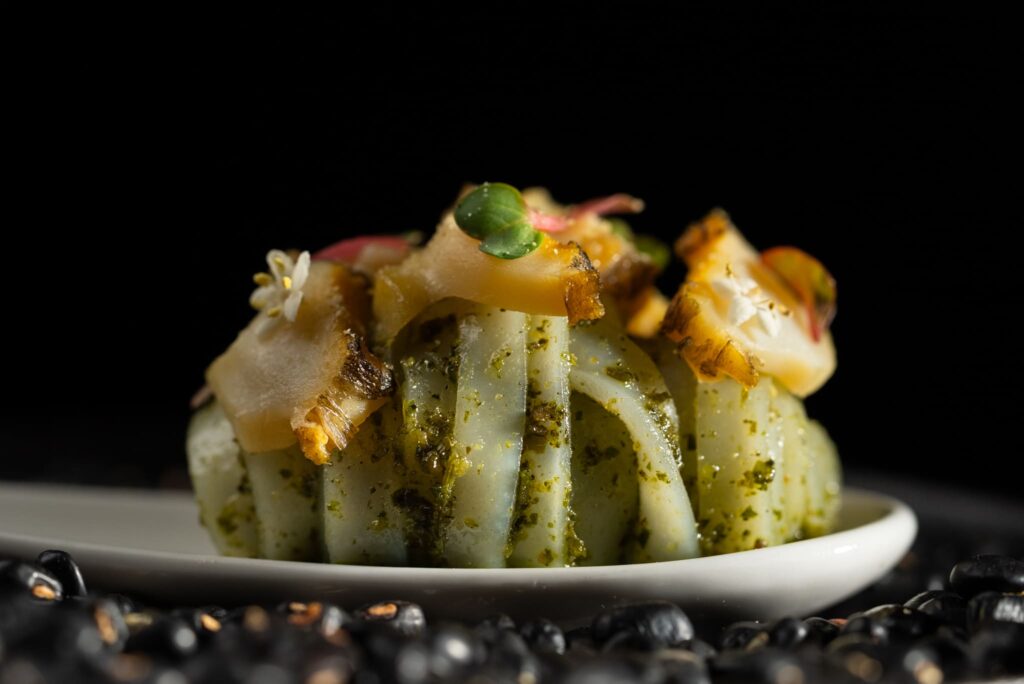
The core of Nén’s culinary identity lies in its commitment to ‘Conscious Vietnamese cuisine.’ The restaurant’s ethos—origin, aesthetic, intention, balance, emotion, and presence—guides its culinary choices. Each aspect, from the sourcing of ingredients to the final presentation, is thoughtfully curated to enhance the dining experience, making every meal an event of conscious consumption and enjoyment.
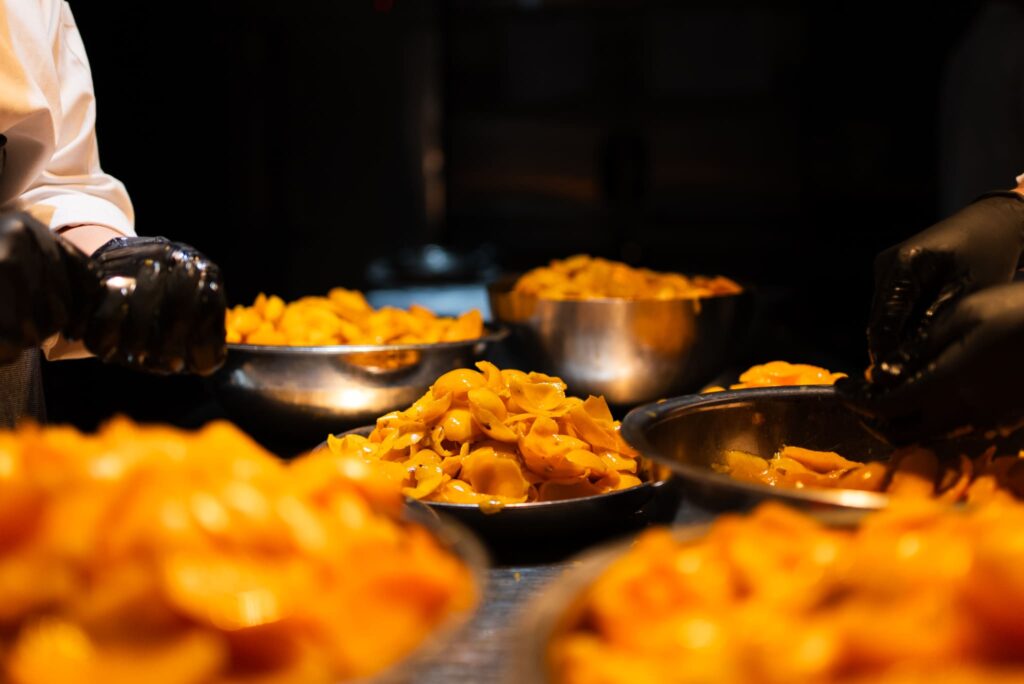
Nén’s unique approach to cuisine also reflects in its name, derived from a humble but flavorful ingredient found in Central Vietnam’s kitchens. This reflects the restaurant’s philosophy: finding potential in the overlooked and elevating it to something extraordinary. It’s about transforming simplicity into splendor, turning each meal into an exploration of the hidden depths of Vietnamese culinary traditions.
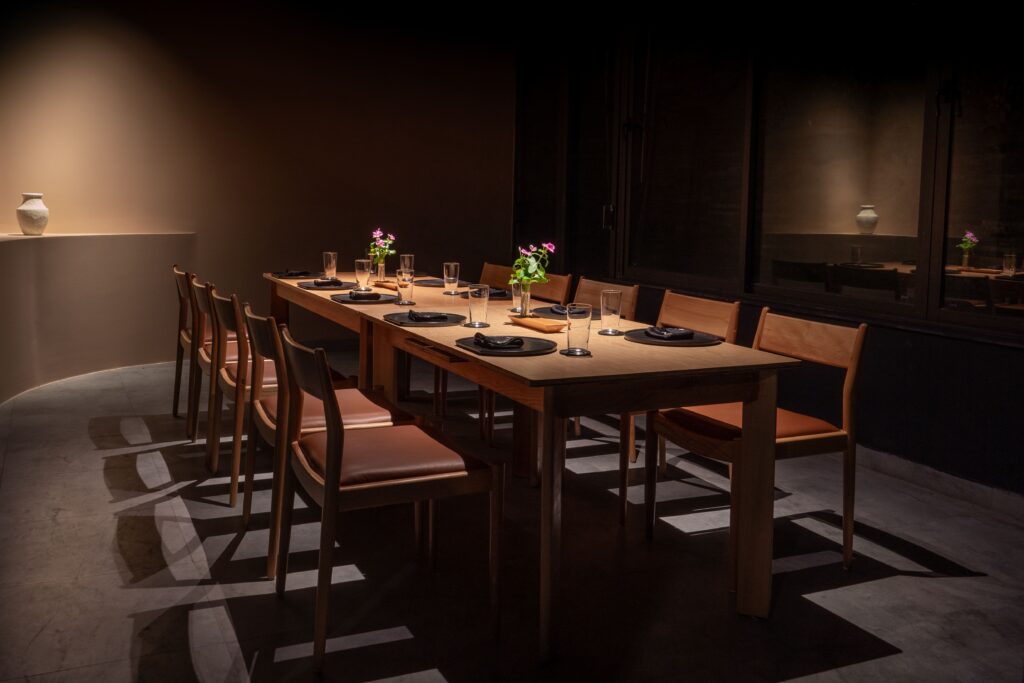
Located next to Nén Farm in Da Nang, the restaurant serves as the flagship for a brand that is deeply invested in research and sustainability. Despite challenges like a temporary closure during the Covid-19 pandemic, Nén Danang reopened in 2023 with renewed vigor and a continued focus on its sustainable mission. This commitment culminated in receiving Vietnam’s first and only MICHELIN Green Star in 2024, a testament to its leadership in promoting a sustainable and ethically aware dining culture.
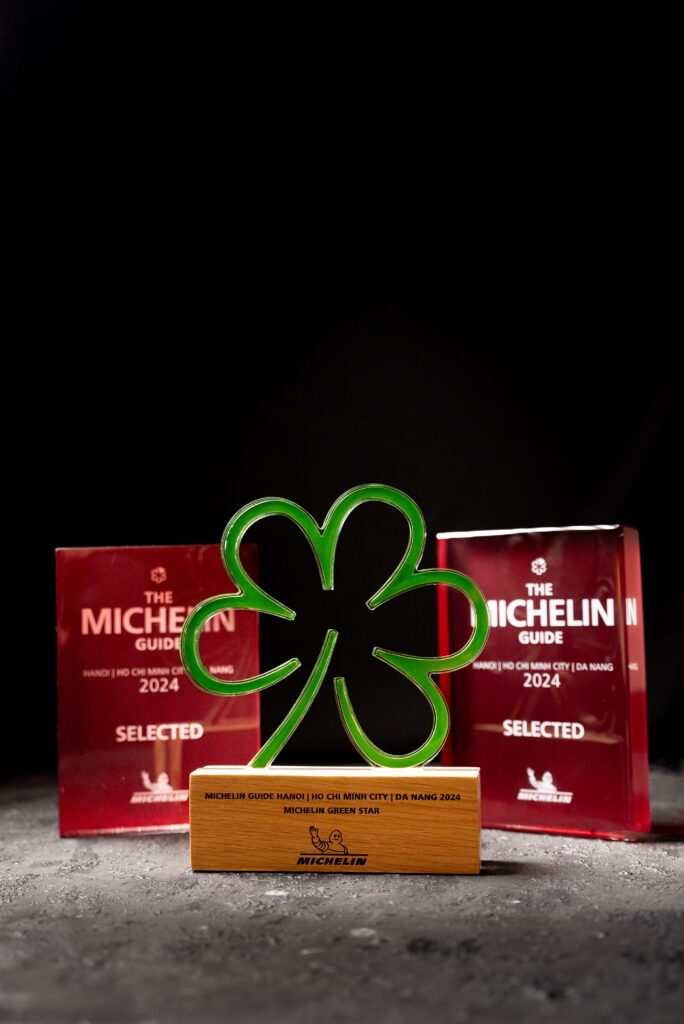
Through Nén Danang, diners are invited not just to eat, but to experience stories through flavors, where each dish serves as a dialogue between the chef and the earth, a narrative that continues to inspire both food enthusiasts and culinary peers around the world.
Jérôme Peschard Leads Vietnam Art Renaissance, Launches Art Exhibition at the Sofitel Saigon Plaza in Ho Chi Minh City
Jérôme Peschard Launches Art Exhibition at the Sofitel Saigon Plaza in Ho Chi Minh City
For the past 60 years, Sofitel Hotels & Resorts has epitomised the essence of French art de vivre across the globe. As 2024 heralds its Diamond Jubilee, commemorated with a series of exclusive events at Sofitel properties worldwide, Sofitel Saigon Plaza, the paragon of French hospitality in Ho Chi Minh City, proudly inaugurated an extraordinary celebration of art.

From Left- Betty Qiffe Pallard, Consul General Daniël Stork of the Netherlands to Vietnam, Nykky Do and Milena Padula- Spouse of Consul General of Italy to Vietnam / photos courtesy of Nick Middleton for the Sofitel Saigon Plaza.

photos courtesy of Nick Middleton for the Sofitel Saigon Plaza.
On the evening of June 21st, the Sofitel Saigon Plaza was the scene of a glittering event, marking the launch of a collaboration with the internationally renowned French Pop Artist, Jérôme Peschard.

French Pop Artist Jérôme Peschard Portrait / photo courtesy of Stephane Thierry
The hotel’s lobby served as an elegant backdrop for an array of Peschard’s stunning oil paintings on recycled corrugated metal, showcasing his inspiration from French Indochina.

From Left- Tracie May, Milena Padula- Wife of Consul General of Italy to Vietnam, Sofitel Saigon Plaza Hotel Manager Alistair Minty, Lindsay Nutley, Consul General of Australia to Vietnam Sarah Hooper, Simon Pugh and Michael Hooper // photos courtesy of Nick Middleton for the Sofitel Saigon Plaza.
The event attracted an illustrious group of attendees, including Mrs. Sarah Hooper, Consul General of Australia to Vietnam; Mr. Daniël Stork, Consul General of the Netherlands to Vietnam; Mrs. Milena Padula, spouse of Italian Consul General Enrico Padula; and Mrs. Lê Hạnh, CEO of TVHub Vietnam. Distinguished guests also included Michelin Starred Chef/Owner Peter Cong Franklin of Ănăn Saigon, totalling one hundred and thirty of Ho Chi Minh’s leading tastemakers.

photos courtesy of Nick Middleton for the Sofitel Saigon Plaza.
Guests enjoyed a selection of exquisite canapés, fine wines, and champagne while admiring Peschard’s captivating works. Adding to the allure, music by DJ Edge Pamute filled the space, and trendsetters Tracie May and Nykky Domodelled custom-embroidered Áo Dài, the national costume of Vietnam, designed by Peschard and couturière Giao Basson. A pop-up retail store showcasing Peschard’s merchandise collection also opened to the public, featuring a curated selection of home decor, limited edition numbered and artist-signed lacquer replicas of paintings, and an array of gift items. Both the boutique and the art exhibit will grace the Sofitel Saigon Plaza throughout the summer, concluding in early September.

photos courtesy of Nick Middleton for the Sofitel Saigon Plaza.
This premier event highlighted the vibrant intersection of art, culture, and gastronomy, celebrating a unique fusion that will enchant visitors throughout the season, encapsulating Sofitel Hotel and Resort’s world of prestige and luxury.

photos courtesy of Nick Middleton for the Sofitel Saigon Plaza.
“I’m deeply grateful to Sofitel Saigon Plaza for granting me such a fantastic platform to showcase my art. Although I am French, my heart is Vietnamese, and I’m thrilled to share my homage to Vietnam with their guests and visitors during the 60th Anniversary celebration of Sofitel Hotels and Resorts.” – Jérôme Peschard
“Marking 60 years of exceptional hospitality, we take pride in being a part of a legacy that consistently sets the standard for excellence in Asia, providing a unique experience for all modern travellers to explore Ho Chi Minh City through a French-inspired perspective.” – Mario Mendis, GM, Sofitel Saigon Plaza
ABOUT SOFITEL SAIGON PLAZA:
Sofitel Saigon Plaza harmonises the sophistication of French art de vivre with the vibrancy of local Vietnamese culture, delivering a luxury hospitality experience enriched by genuine heartfelt service. Conveniently located in a tranquil enclave on Le Duan Boulevard, Sofitel Saigon Plaza places you in the heart of Ho Chi Minh City’s business, cultural, and shopping district. The hotel boasts 286 rooms and suites adorned with refined décor and deluxe amenities, a fitness centre featuring advanced exercise equipment, and an outdoor swimming pool with breathtaking city views. Sofitel Saigon Plaza also features five dining establishments serving local and French cuisine, seven polished meeting rooms, and an opulent ballroom equipped with state-of-the-art facilities, making it the ideal destination for business, leisure, meetings, and gatherings.
ABOUT JÉRÔME PESCHARD:
Dubbed the “Gauguin of Vietnam,” Jérôme Peschard is a self-taught artist whose work reflects a life richly lived and creatively charged. His art bridges the past with the present, blending East and West, while drawing profound inspiration from his adopted home of Vietnam. Characterised by the use of oil on rusted corrugated iron sheets salvaged from local construction sites, his pieces reflect the very essence of Saigon – its history, development, people, culture, and vibrant spirit. Peschard’s unique fusion of Western pop art with Asian influences, inspired by comic book legend Jack Kirby and modern art icons like Basquiat and Warhol, continues to evolve as he explores new themes in his storytelling. In the dynamic energy of Vietnam, Peschard not only found his place in the world, but also his distinctive artistic identity.
Join Us MidTown NYC for An Incredible Prosecco Experience: Taste and Discover with Wine Expert Alan Tardi Wed June 26th at New York Wine Studio
Join Us for An Incredible Prosecco Experience: Taste and Discover with Wine Expert Alan Tardi Wed June 26th at New York Wine Studio
Prosecco has gone from a little known mountain fizz to a vinous superhero, overtaking Champagne (and every other sparkling wine out there) and enjoyed by wine drinkers throughout the world, as the base of a cocktail or an everyday quaff.

But despite its huge popularity, most people don’t know much about it.
And there is much more to Prosecco than many people are aware.
”My objective is to
clarify the critical differences
between the original ancient Conegliano Valdobbiadene Prosecco and
the DOC Prosecco that was enacted in 2010.”
Alan Tardi
New York Wine Studio
Prosecco is produced only in Italy, in the Northern regions of Veneto and Friuli, and there are three official Prosecco appellations.

Prosecco DOC
One of them, Prosecco DOC, was created in 2010. It occupies a huge, mostly flat area encompassing almost two entire regions and accounts for most of the 700+ million bottles of Prosecco produced each year.
Conegliano Valdobbiadene Prosecco DOCG
Conegliano Valdobbiadene Prosecco DOCG is a tiny area in the foothills of the Dolomites consisting of 15 small municipalities in the province of Treviso. This is the ancient winegrowing area where Prosecco was born and made a miraculous comeback in the aftermath of World War II.

New York Wine Studio’s Alan Tardi
Besides its pedigree, there are numerous factors of the Conegliano Valdobbiadene enclave that distinguish it from any other winegrowing area in the world: complex and diverse topography, variety of soils, native grape varieties, distinct sub-areas, ancient history, and varied typology—bubbly, fizzy, and still; secondary fermentation in tank or in bottle, leaving sediment in the bottle (known as Ancestral Method) or removing it (Traditional Method).

In this class—which takes place right in the middle of National Prosecco DOC week—we will discuss the origin and evolution of Prosecco in the Conegliano Valdobbiadene area. We will also examine the two additional Prosecco appellations created in 2010.
But most of the time will be devoted to exploring and tasting Conegliano Valdobbiadene Prosecco through a lineup of 8 exceptional terroir-driven wines, in a variety of styles, that demonstrate the unique characteristics, complexity, and diversity of the original Prosecco.
Participants will also learn how to say “CONEGLIANO VALDOBBIADENE” like an Italian!

Alan Tardi has arranged a fantastic lineup of unusual and exceptional wines (half of them are coming directly from Italy) which demonstrate the various factors that characterize the complexity and uniqueness of Conegliano Valdobbiadene: Different production methods (“Tranquillo” i.e. still, Martinotti, Classico/Traditional, Ancestral); frizzante, spumante; single vineyards, Rive, native grape varieties; diverse, soils, terroirs and topographies.
List of Wines
- Prosecco Tranquillo DOCG “Il Canto Antico” — BORTOLOMIOL*
- Colli Trevigiani IGT Verdiso Frizzante Sui Lieviti — GREGOLETTO
- Progetto 5 Varietà Conegliano Valdobbiadene DOCG Brut — MARCHIORI*
- Conegliano Prosecco Superiore DOCG Rive di Ogliano Extra-Brut — BIANCAVIGNA
- Superiore di Cartizze Brut DOCG — RUGGERI*
- Superiore di Cartizze DOCG “Private” Rifermentato in Bottiglia 2014 — BISOL
- Conegliano Valdobbiadene Prosecco Superiore DOCG Rive di Carpesica “S.C. 1931” Metodo Classico — BELLENDA*
- Valdobbiadene Prosecco Superiore DOCG Asciutto, Rive di Colbertarldo, Vigneto Giardino — ADAMI
- Torchiato di Fregona Colli di Conegliano DOCG “Ciàcoe” 2016 — CA’ DI RAJO*
*Shipped directly from the winery in Italy
Find more information and buy tickets at New York Wine Studio or at the link below.
https://www.newyorkwinestudio.com/original-prosecco
You Might also like
-
Love, Gilda Director Lisa D’Apolito To Present Keynote At Gilda’s Club NYC Luncheon May 9
Love, Gilda Director Lisa D’Apolito To Present Keynote At Gilda’s Club NYC Luncheon May 9
Lisa D’Apolito, filmmaker, director, and producer of acclaimed Gilda Radner documentary will be the featured speaker for Gilda’s Club NYC 11th Annual Celebrating Women luncheon, at the Metropolitan Club, Wednesday, May 9th .
D’Apolito became interested in Gilda through her work with Gilda’s Club, where she has been helping the nonprofit create short films for their events since 2010. Love, Gilda showcases the hilarious highs and tragic lows in an incredible life of the Saturday Night Live comedian, and one that echoed one of her most famous lines: It’s always something.
“I am honored to be the keynote speaker at Celebrating Women,”
states D’Apolito.
“Gilda Radner’s legacy is truly unique as she has not only inspired today’s comedians but she is an ongoing inspiration for people affected by cancer through the work done at Gilda’s Club.”
Related:
Co-Founder Jane Rosenthal Announces Tribeca Film Festival 2022 Season and key entry dates.
- Gerri Willis, anchor and correspondent of Fox Business Network, presented the 2017 luncheon keynote speaking of her own cancer experience and returns in 2018 as host.
- Celebrating Women honors exemplary women in the fields of healthcare and business.
- Honoree Michelle Freyre, President of U.S. Beauty, Johnson & Johnson Consumer Inc. is responsible for the company’s high-profile portfolio of Beauty brands including AVEENO®, CLEAN & CLEAR®, LUBRIDERM®, LE PETIT MARSELLAIS™, RoC®, ROGAINE® and NEUTROGENA®, the largest brand within Johnson & Johnson Consumer Inc. Freyre was recently named on the 2018 Fortune 50 Most Powerful Latinas in Business, as well as honored as a 2018 Working Mother of the Year by the She Runs It Organization.
- Honoree Alise Reicin, MD is the Senior Vice President and Head of Global Clinical Development for the biopharmaceutical business of Merck KGaA, Darmstadt, Germany and oversees Clinical Therapeutic Areas, Statistics, Evidence and Value Development, and Clinical Operations. Dr. Reicin has extensive early and late clinical development experience in a broad range of therapeutic areas including oncology and immunology.
Related:
Broadway’s Tony Nominated ‘For Colored Girls…’ Announces Extension to June 5
Post Views: 62 -
NY’s The High Line Blossoms by Major Gift from Diamonstein – Spielvogel Foundation
NY’s The High Line Blossoms by Major Gift from Diamonstein – Spielvogel Foundation
Building on two decades of support for the High Line by Barbaralee Diamonstein-Spielvogel and Ambassador Carl Spielvogel, the new gift will be recognized at the West Seating Steps, on the High Line Spur
The High Line, the organization that originally rallied for the elevated structure’s preservation and reuse as public space, starting in 1999, and now operates it as a park under a license agreement with NYC Parks, announced a new gift from the Diamonstein-Spielvogel Foundation.
The gift will help the organization, which must raise nearly 100% of its annual budget, fund a variety of crucial park needs.
Related:
NYC’s Times Square is about to undergo a massive update.
It will be recognized with signage at the West Seating Steps, located at the High Line Spur, which bridges the intersection of 30th Street and 10th Avenue, in Manhattan.
One of the High Line’s largest resting areas, the West Seating Steps provide respite for park visitors and accommodate audience members for performances and public programs.
The Steps occupy the western edge of the Spur, which was originally built to carry postal trains from the elevated tracks into the Morgan General Mail Facility.
The seating feature directly overlooks the High Line Plinth, where new, monumental art commissions are presented on a rotating basis, and the site of a planned connection to Moynihan Train Hall, projected to open in late 2022. ‘
‘We are so grateful to acknowledge the support of the Diamonstein-Spielvogel Foundation, and the longtime commitment and leadership of Founding High Line Board Member Barbaralee Diamonstein-Spielvogel, at the West Seating Steps,’’
said Robert Hammond, the High Line’s Co-Founder and Executive Director. ‘
‘This iconic feature stands at the intersection of the High Line’s historical past, its present-day artistic programming, and its future role as a connector to Moynihan Train Hall, which is a crucial component of High Line’s vision to make New York City more livable, equitable, and connected.’’
“The Diamonstein-Spielvogel Foundation is pleased to provide ongoing support for the remarkable stewardship of the historic High Line, now a model for community activism, citizen-led reuse of industrial infrastructure,” said Dr. Barbaralee Diamonstein-Spielvogel.
“The storied structures of our past play an essential role in the continued strength of our city, and so it seems especially appropriate that the Foundation’s gift will be recognized at a feature that overlooks the gateway to the future Moynihan Connector, which will allow New Yorkers to safely and enjoyably make their way from the High Line to the new Moynihan Train Hall, a remarkable example of adaptive reuse of a historic New York City landmark.’’
Related:
NYC’s The High Line to Re-Open After Pandemic Closure
As a Founding Board Member of the High Line, Dr. Diamonstein-Spielvogel helped fight against the demolition of the historic High Line structure and served on the joint committee of City and High Line representatives that selected the design team of James Corner Field Operations and Diller Scofidio + Renfro.
She helped grow the High Line from a small group of community-based advocates into a strong non-profit organization that could enter into a license agreement with NYC Parks and responsibly fund and manage the High Line’s annual operations. She spearheaded a government relations initiative that led to over $20 million in federal construction funding toward the High Line’s adaptive reuse.
In June 2021, The Diamonstein-Spielvogel Foundation and the New-York Historical Society, the oldest museum in New York City, announced plans to create the Diamonstein-Spielvogel Institute for New York City History, Politics and Community Activism—–a new division within New-York Historical Society conceived and supported by the Diamonstein-Spielvogel Foundation.
An important component of the Institute’s mission will be the collection of relevant materials that relate to 20th and 21st-century local history, including the civil rights movement, women’s rights, climate concerns, the drive for LBGTQ+ rights, and the historic preservation movement. A selection of historic documents associated with the High Line and its transformation from disused rail structure to public open space were among the first pieces placed in the Diamonstein-Spielvogel Institute’s archive.
ABOUT THE HIGH LINE
The High Line is both a nonprofit organization and a public park on the West Side of Manhattan. Through our work with communities on and off the High Line, we’re devoted to reimagining public spaces to create connected, healthy neighborhoods and cities. Built on a historic, elevated rail line, the High Line was always intended to be more than a park. You can walk through the gardens, view art, experience a performance, enjoy food or beverage, or connect with friends and neighbors——all while enjoying a unique perspective of New York City.
Nearly 100% of our annual budget comes through donations. The High Line is owned by the City of New York and we operate under a license agreement with NYC Parks
Post Views: 9 -
Find Chile’s Santa Ema Winery for your next Meal
Chile’s Santa Ema Winery brings Premium Flavor to your next meal.
Chile’s Santa Ema Winery brings culture, family and premium wines to focus over their multi-generational history. Have you tasted one of their bottles? It brings dimension to light dishes, like seafood, heavier like BBQ, even dessert.

Today I have the opportunity to speak with Santa Ema’s Jaime Merino about life, history, flavor pairings and what’s next for Santa Ema.
I don’t know if people truly understand how busy wine professionals are. Would you mind just giving us an idea of how much you’re traveling and how you spend your time?
Jaime Merino: Yeah, absolutely. You know that in the wine industry, it is extremely important to be in front of the distributors that are our commercial arm into the different states.
We need to have an importer because we are an imported brand. So our wine’s coming from Chile. In order to get into the U.S., we need to have an importer. So we spend a lot of time in front of the importer and virtually every week we’re in touch either via video calls or phone calls or face to face, taking the wines into each one of the states, we need a distributor in those states.
That is the representative of the wine. So we assigned the brand to a set distributor in New York, for instance, and then that distributor with their sales force is going to take the wines to the trade, to the street. So it’s going to take it to the wine stores, going to take it to the restaurants, going to take it to the clubs, depending on the legalities of each one of the states.
Therefore, we need to spend a lot of time with the distributors and the sales forces of those distributors to make sure that they have the information for each one of the wines that they’re gonna be pushing. And then not only with the Salesforce of the distributors, but also with the trade and their sales forces.
Because any one of us as a consumer walking into a wine store that has already made the decision that we want to buy a wine, we probably have a budget. And also we probably have an idea that we want either a white or a red, but then we need to start diving into the details. Do I want domestic? Do I want imported?
And then if it is imported, do I want old world, new world? Then you start narrowing to the point that you’re going to say, I want to buy a wine from Chile.
Then that opens a new box of alternatives. So you can imagine the process of getting to one particular bottle of one particular supplier needs a lot of skimming into this very interesting and complex wine industry.
So let’s talk about the historic brand. Can you share a little bit about the history?
Jaime Merino: Yeah, absolutely. Santa Ema with one M, because we come from Chile.
But Santa Ema is a family owned company. It is owned by a family, last name Pavone, that their roots go back to Piedmont, Italy. So today, the company is run by members of the third and fourth generation of the family, and the founder of Santa Ema is the grandfather of the third generation, a gentleman named Pedro Pavone, that migrated from Italy, a little region in the Piedmont, Italy, called Rivalta.

And he migrated into South America, went across the Andes in a sidecar motorcycle and established himself in the heart of the Mao Valley, southwest of Santiago, the capital city in Chile. So he established himself in that area in 1917. And established his family, grew his family, and with his son, Felix Pavone, they bought some land and one of the properties that they bought in Isla del Maipo was actually devoted to agriculture, and that particular property, the name was Chakra Santa Ema, that is like an orchard Santa Ema or Farm Santa Ema.

So that is the origin of the name / brand that we use. Because Santa Ema was a staple landmark in that particular region.
They planted vineyards, they started producing wines that initially they were selling bulk.

But then in 1956, they founded Ema Winery, and they started producing their own wines to be bottled and started selling in the domestic market. Throughout the years and throughout the development of this company, pretty much done by Felix Pavone, we’re talking second generation.

The first exports of Santa Ema happened in 1986 into Brazil. When Brazil was just starting into becoming a wine consuming country. Today Brazil is one of the engines in South America in terms of top markets for wine consumption.
So ultimately it started as a father son business that grew and evolved into a multi generational still family business.
Yes. And probably different to many families involved in the wine industry and in the wine business for the Pavone family, this is it. So this is what they do. This is their life. This is their reputation.
Basically, they are not in the wine business because it’s trendy, because it’s fashionable. No, this is a business for them with family members hands-on. Today we have members of the third generation and fourth generation so we are undergoing a very interesting times to the winery because you can imagine that the members of the third generation are people mid 50s to early 60s and then the members of the fourth generation are their early tp mid 30s. Professionals coming from college with sometimes different visions from traditionally what the family has done.
A second ago, you mentioned regions. Let’s talk about the vineyard and the regions and the soil types Santa Emma uses and works with.
Jaime Merino: The winery and most of our properties are established in the Maipo Valley in Chile. Maipo is probably one of the most traditional valleys and wine regions in the country. Chile, for those people that have a rough idea of what Chile is, first of all, we need to look at South America.
If you look at South America, and – I will challenge people reading this to grab a map and look at South America – you’re going to notice that South America is shaped as a cluster of grapes. Therefore, no secret why South America is a very good vineyard paradise, as it is referred to sometimes, and that’s why we have very strong countries in South America producing wines.

Of course, Argentina, Uruguay, Brazil producing these days. Peru becoming a very interesting offering of wines. There is wine produced in Bolivia, Chile. We’re going to start seeing a lot of wines coming from South America. But then if we go back to Chile, Chile sits on the western side of South America.
It runs north to south, and it roughly expands for 4,000 miles, but with an average width that is no more than 180 to 200 miles. So the best way to picture Chile, as I normally explain to consumers and trade, take the northern tip. take the southern tip, flip it upside down, and bring it to the west coast in the U.S.
So now, the northern part of Chile is going to be from Los Angeles all the way down to Baja California.
Baja California, that is super dry and desert, that is going to be your Atacama Desert in Chile. The central part of the country, It’s going to run from San Diego all the way up to San Francisco, so it’s going to be pretty much the agriculture area of the country.
That’s why, when we move, into October, November, we start seeing a lot of peaches and plums and fruits coming from Chile because we are in the opposite season. Then if you go from San Francisco up to Seattle; and all the way up to Alaska, that is going to be the southern part of the country. So you’re going to go into the lake districts, ultimately you’re going to go into Antarctica.
So that is a good way to picture how Chile looks from north to south, that will be like moving from south to north on the western side of the U. S.
Now, if you grab Chile and you put it across the U. S., it will span more or less from New York all the way up to Seattle. So that is going to be the length of the country if we put it across the U.S.
I love those comparisons.
Jaime Merino: Appreciate that. Yeah, just to give a sense of location and a sense of what people should find there because sometimes at least here in the U. S. Chile is known for some ideas of certain regions, like for instance, the northern part of the country because of the Atacama Desert and the geysers in the in the northern part of Chile, or if you go to the southern part of Chile and you go to Torres del Paine, that is a very touristic area. Or ultimately, if someone is a little bit more exploring with an exploring soul, they can jump into Easter Island, that is also Chilean territory, and that will be more of the Polynesian side of Chile.
In terms of the Maipo Valley, it sits pretty much in the central part of Chile in the belly bottom of the country, Santiago being the capital city, and Maipo surrounds the Santiago to the south and runs from the foothills of the Andes, starting at 1,000 to 3, 000 feet above sea level, all the way to the coast, so we’re moving east to west, bordering the Pacific Ocean.
That is going to be pretty much what you’re going to see in Maipo. And that applies pretty much to most of the wine regions in Chile, running east to west. With very few exceptions, most of the valleys in Chile, Maipo for instance, they take the name out of the river that runs through the valley that waters the vineyards and all the agriculture activity that happens in the valley.
So Maipo Valley is because there is a Maipo River that runs from east to west. And then, since you’re coming from the Andes, starting at 3,000 feet and then going through the central part of Maipo and into the ocean you have very different growing conditions in Maipo Valley.
So most of the time I tell consumers when you are exposed to a bottle of wine coming from Chile that on the front label reads Maipo Valley, try to ask where in Maipo, because the conditions are going to be totally different.
Just to give you an example, here is a Sauvignon Blanc Select that reads Maipo Valley, but this is a central part of the valley that is only 25 miles inland from the ocean. So we have good, cool conditions to be able to produce a very expressive, fresh, crisp Sauvignon Blanc.
But then, on the other side, I have a Cabernet Sauvignon, also from Maipo Valley, but here we have a combination of fruit coming from a vineyard that we have at 1, 000 feet above sea level, with fruit coming from a vineyard sitting roughly at 500 feet above sea level.
Okay, so it is extremely important to understand this. Probably people are wondering why the altitude is so important or how the altitude could impact in terms of the style of wine that we’re going to produce. In simple words, if any of you come to visit us in Maipo, say January, February, March, that is our summertime, the first thing that I’m going to do is to make sure that you’re wearing a hat, that you have enough water, and most importantly, that you have sunscreen on you.
Okay, so let’s take this example now to the vines. Can we control the amount of water that the vines have? Yes, because our vineyards are planted with drip irrigation systems, so we can control the amount of water that each vine is getting.
Can we give hats to the vines? No, they need to find their own ways to protect themselves by growing extra leaves, trying to generate a very populated canopy of leaves to protect the clusters. What do the clusters do? Because we cannot put sunscreen on the clusters, so they need to naturally grow thicker skin to protect the fruit.
And just because of that thicker skin, you’re gonna have more structure, more tannin, more varietal expression. So that’s why it makes a very important difference where you’re planting your fruit or your vines in order to determine the style of wine you’re gonna get.
The higher you go, the more robust wines you’re going to be able to produce just because of this natural protection the vines develop.
We’re going to talk about your bottles.
Because we have a lot of foodies reading. What kind of foods would be great to pair with each one?
Jaime Merino: Before I go into the specifics of the wine, and particularly to all the foodies, I am one of those. Let me tell you that anytime that a winemaker that is going to be,”the winery chef”, is thinking on the wine that he’s going to be producing, he should be thinking immediately with what type of food he’s going to be pairing that wine.

That is probably one of the key aspects to understanding wines, and this is going to be at the same time an invitation to all our viewers, foodies or not foodies, to break taboos.
And what I mean by this is that probably our grandparents and eventually our parents were of the idea that whites are for seafood and shellfish and reds are for meats and game and why?
Why? Break taboos, play with this. This is a life element that we need to challenge to see how it performs with different types of foods and different types of elements. Also one of the other big differences that I find in Chile, comparing the U. S., in Chile, wine is part of the diet.
So for us, any meal lunch or dinner could not exist without a glass of wine to go with whatever type of food we’re going to be having. That is also a huge difference being part of the diet and not just looking at wine and approaching wine as a special occasion product that we’re going to be consuming.
Having said that, I have in front of me three of the most popular wines in our portfolio:

Santa Ema Select Sauvignon Blanc
Sauvignon Blanc is our Santa Ema Select Terroir. So Chile, in terms of whites, produces Sauvignon different types of white varieties. Chenin Blanc, Pinot Grigio, that is extremely popular, but Sauvignon Blanc is the queen of the whites, and Chile has a very strong reputation for Sauvignon Blanc.
One of the things that you need to be aware of is that stylistically, what we try to accomplish here is not the super grassy, grapefruity, very exuberant nose that you will find in Sauvignon Blancs coming from New Zealand. Sometimes you’re going to find that in Chile. But the style of wines in Chile in general is more geared towards France, the old world.
So this is going to be like a crossover between New Zealand and Sancerre. You’re going to have more minerality, you’re going to have a little bit more complexity, and not that you’re going to open this bottle and you’re going to have that very exuberant nose that is going to be extremely, Intriguing. No, it’s a little bit more tame.
It has a very nice refreshing acidity. It has a very crispy style with very interesting citrusy notes to it, making it a very good wine to enjoy at the end of the day, just because you want to hit a glass of wine at the end of the day or to be paired with food.
What type of food?
In my world, I will do ceviche all day long. If not, I will go with some oysters. Maybe with a delicate white fish – flounder or cod, for instance. Not too elaborate, not too much abusing on dairy products, cream or butter. The more simple, the better.
Cabernet Sauvignon from Maipo Valley and I have Merlot from Maipo Valley. I’m going to leave Merlot to the end. Although in tasting order, most probably. We’re going to do first Merlot and then Cabernet Sauvignon, but I’m going to explain the reasons why I’m leaving this Merlot to be the last one.
Santa Ema Select Cabernet Sauvignon
Cabernet Sauvignon from the Maipo Valley. In terms of the fruit, a combination of fruit coming from the central part of the valley and fruit coming from our vineyards in the foothills of the Andes. Just to give a little bit of the extra kick, extra structure, a little bit more of a backbone.
A Cabernet Sauvignon by the book, meaning a very honest, true expression of the variety. We use a combination of French and American oak barrels. We want a little bit of the expression of both types of wood. American most of the time is going to be more chocolate, more vanilla, more of the “sweet tastes” that you will find in wine.
French is going to give you more of the leather, the tobacco, a little bit more of the complexity. And that is the reason why we use a combination of both types: American oak barrels and French oak barrels. But not to abuse the oak, so we keep a percentage of the wine in American, and percentage of the wine in French, normally six to eight months, sometimes up to 10 months.
Then we blend it all together and we put it back in the bottle just to keep a good expression of fruit.
Red meats, strong cheeses, it works extremely well. So if you guys like grilling, barbecuing, big time, a perfect match to go with anything that you’re going to be grilling, barbecuing, but please leave the barbecue sauce in the pantry or the refrigerator because the sweetness of the barbecue sauce is going to kill most of the wines that are going to be pairing with it.
If you want ribs with barbecue sauce, fantastic! Drinking wines that are going to be suited for that is going to be challenging. I’m telling you try to keep your meats as clean as possible in terms of any super hot, spicy additions or the sweetness of barbecue sauce.
Santa Ema Reserve Merlot
Santa Ema has been working with Merlot for many years to the point that our reserve on Merlot is one of our flagships in the portfolio. Iit is a very particular wine because we use American oak barrels that are produced by a cooper in Missouri specifically for this wine with specs that are determined just for this wine.
What is the secret is that these barrels are toasted inside at a certain level of temperature that is going to allow a caramelization of the wood. That is going to be transferred ultimately into the wine via very distinctive notes of vanilla, roasted coconut, and sometimes nuances of chocolate, to the point that in certain markets, this wine is referred to as the cookies and cream wine or the chocolate kiss wine.
It’s a very interesting bottle to explore and to renew your vows with Merlot.
We have a very strong influence of Italian dishes here, so say a lasagna, chicken parmigiana will go extremely well with this, a Mexican dish with mole sauce, not too spicy mole, not too much in the heat side of mole, but more in the profile taste of mole. And if you really want to throw a curveball to this Merlot, try to venture and pair it with tiramisu and see what happens.
Phenomenal ideas.
Just to give you a little thing in relation to food and wine pairings. Many years ago, in a wine event here in Atlanta with Alton Brown, that is one of the Food Network celebrities, we put together a seminar “How to destroy a wine” and the whole concept of it was, me choosing wines, Alton Brown cooking and in the last minute doing something to what he was cooking for me to be able to say, ‘Alton, you destroyed my wine.’
So it was a very interesting experience and particularly for the consumers attending a very eye opening experience that very simple things like [preparing] a green salad that you drizzle some olive oil and you put a little bit of salt and pepper and in the last minute you say, ‘Okay, I’m going to pour this with the Sauvignon Blanc.’
Then Alton asking me, ‘Do you want me to squeeze some lemon on your salad?’ Sure, absolutely. But you destroy my wine. The show [had ]little tips and things like that.
Is there anything that we haven’t talked about that you really feel the audience wants to hear about or you want to share?
Jaime Merino: Today, one of the biggest challenges that we have as a country, Chile has a very good established reputation as a wine producing country, but most of the time perceived as a good value producing country, inexpensive wines coming from Chile. So you’re going to find brands out there, sometimes retailing for $5, 6, 7 a bottle.
And that’s fine. But that is one aspect of Chile. There’s another aspect of Chile of more premium, super premium, ultra premium wines.
I feel very often that consumers are afraid to venture into those more expensive wines. And sometimes when I’m talking more expensive, normally they retail between $15 and $18 a bottle.
That is a new Chile that needs to be discovered because that is where most of the interesting revolution in terms of the wine industry is happening right now.
My invitation is to go to your preferred store, go to the South American section or Chilean section, if there is one, and see what they have from Chile. Okay. That really
Where can we find these wines? What’s the website? And how can we follow you on social media?
Jaime Merino: Okay if you want to know a little bit more, go to www.SantaEma.CL the CL is for Chile.
If you want to follow us on social media, Instagram and Facebook
The easiest way to buy Santa Ema is go to wine.com and see what is available in your region,
Post Views: 411


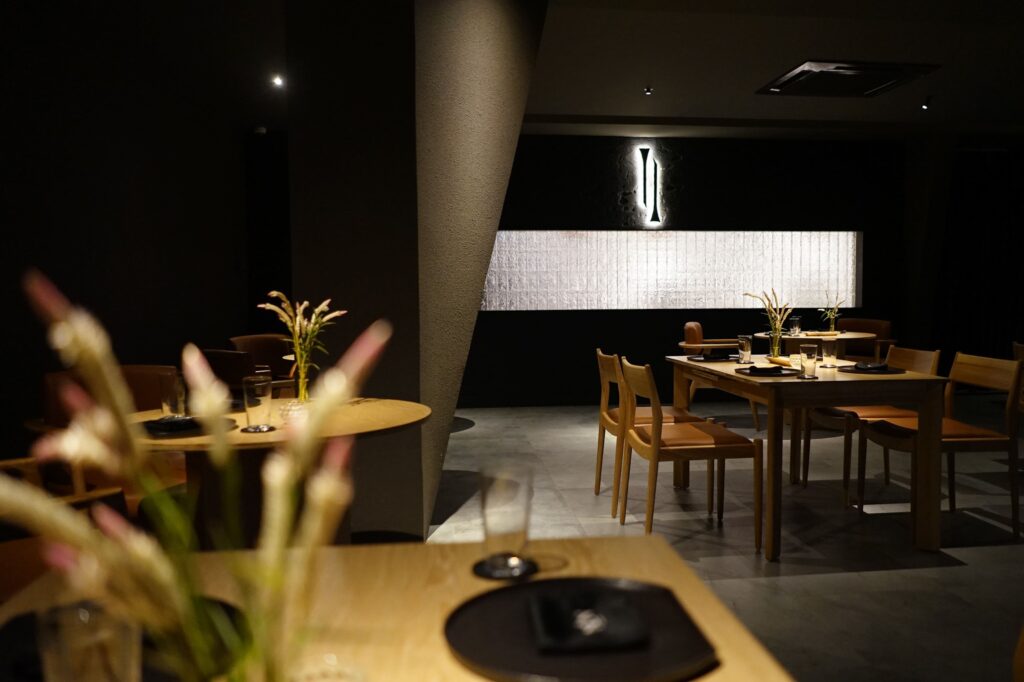

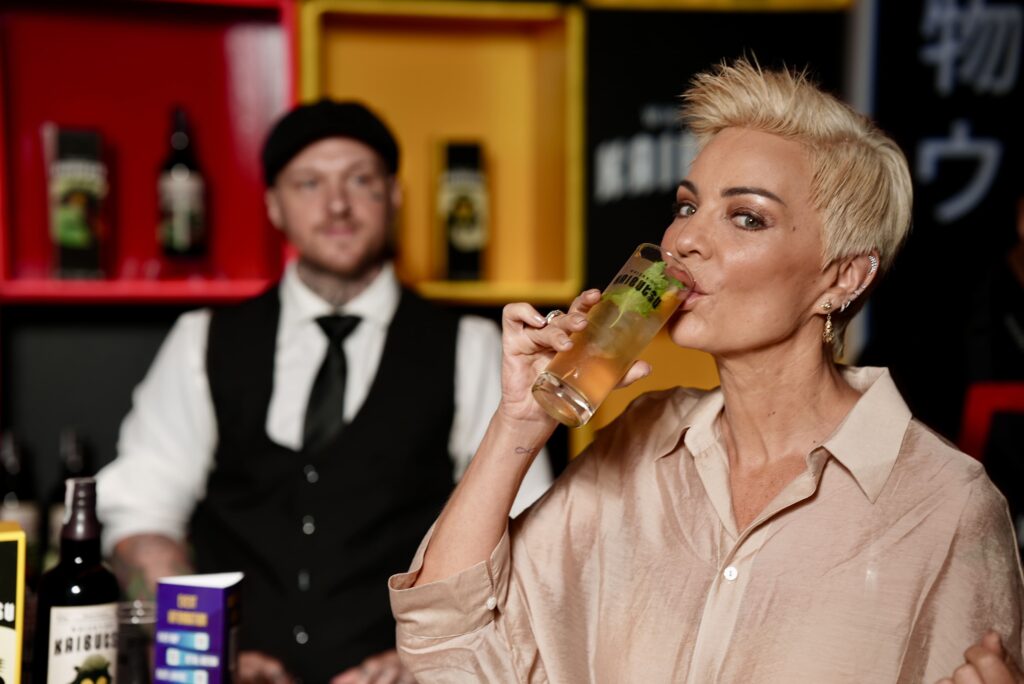

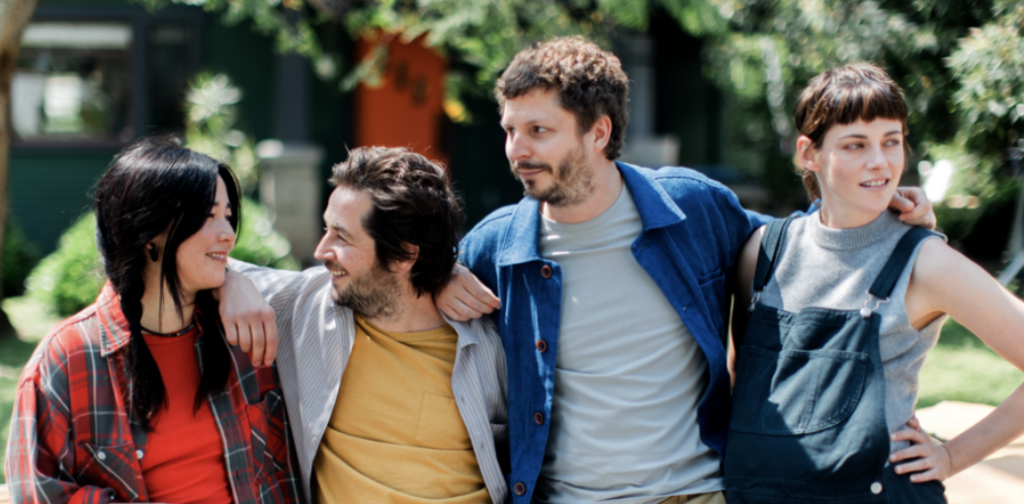
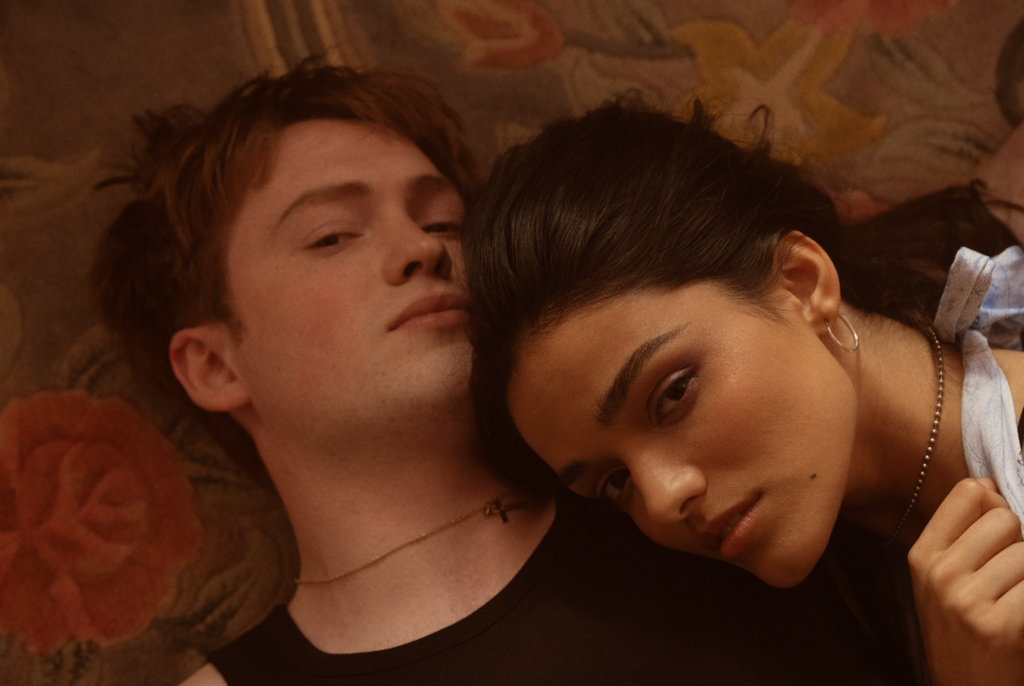
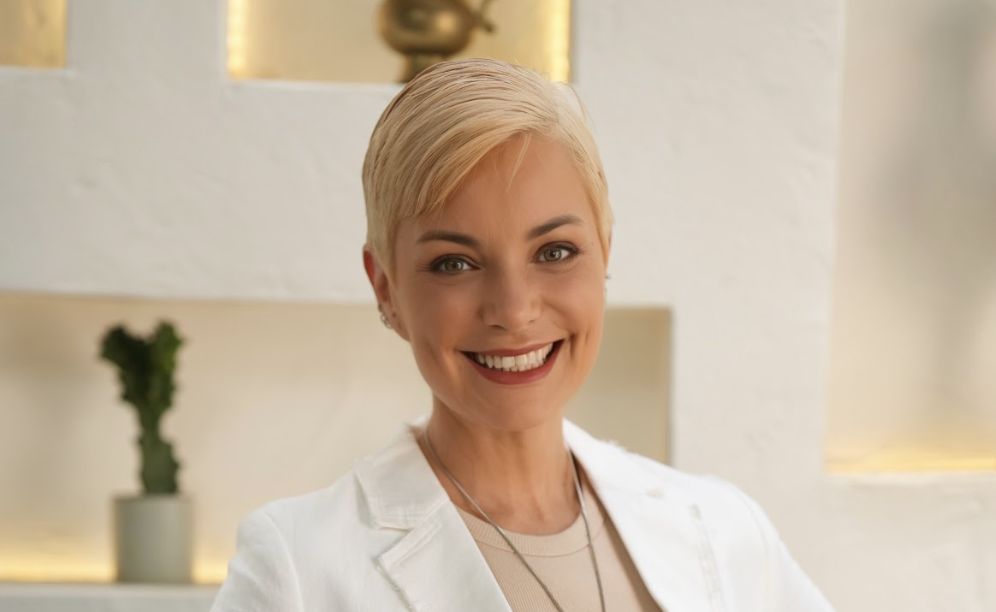


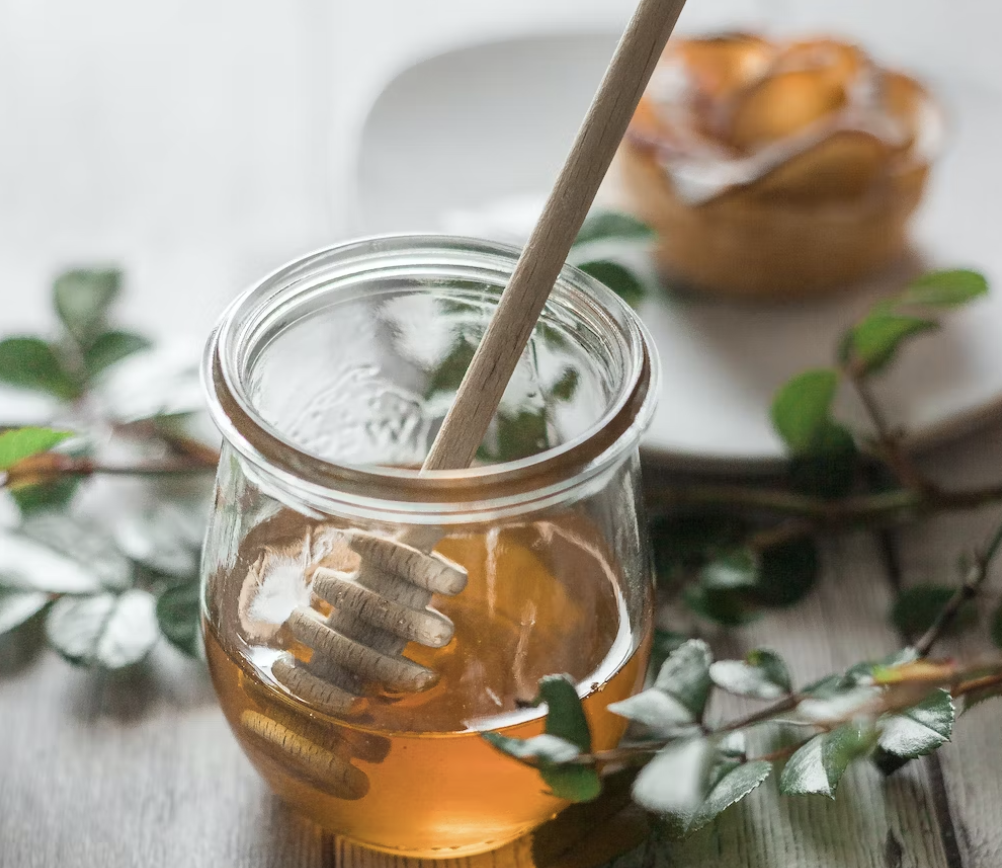


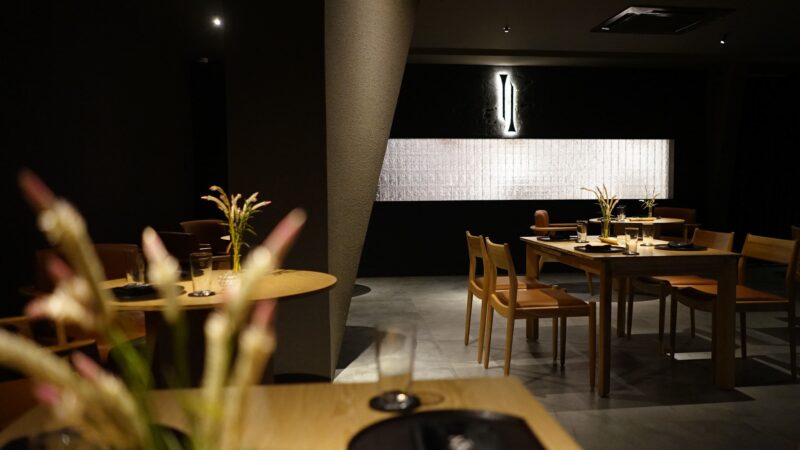


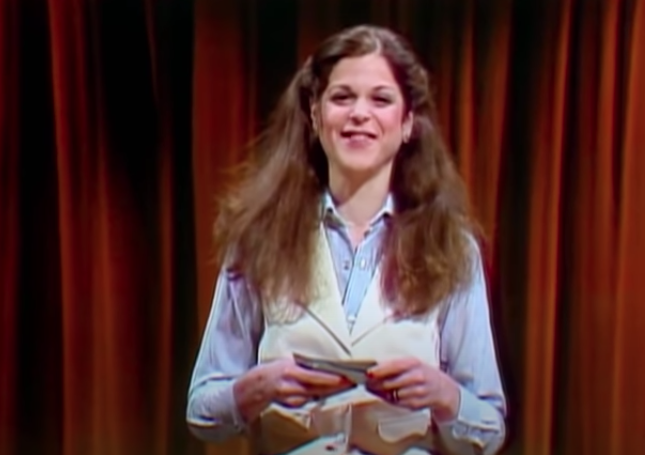
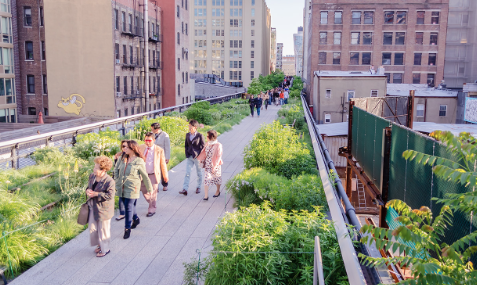
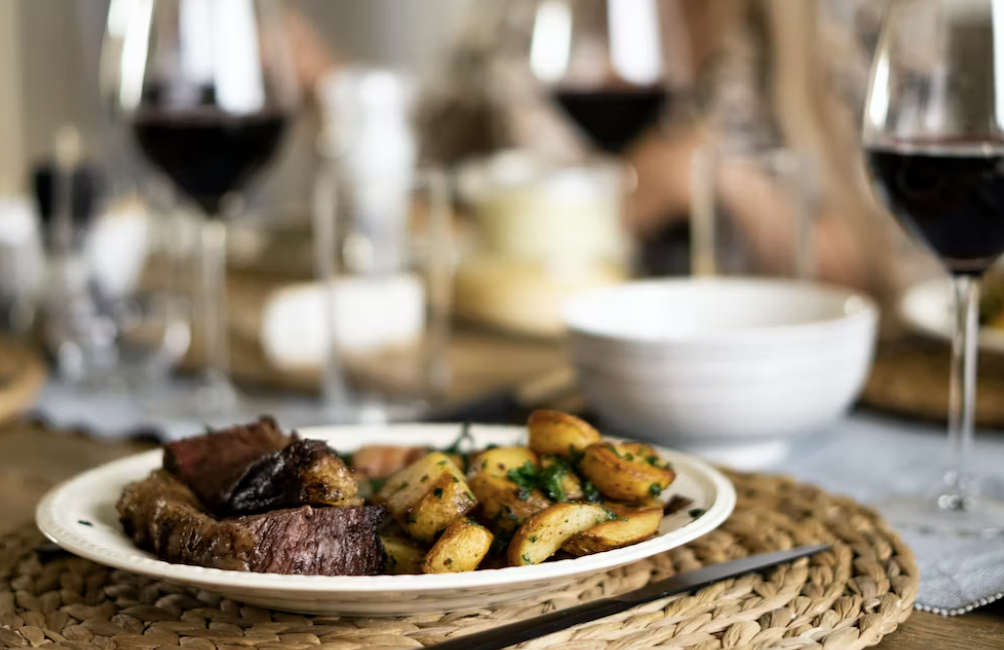



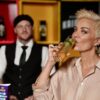



These are great wine options! Love rose